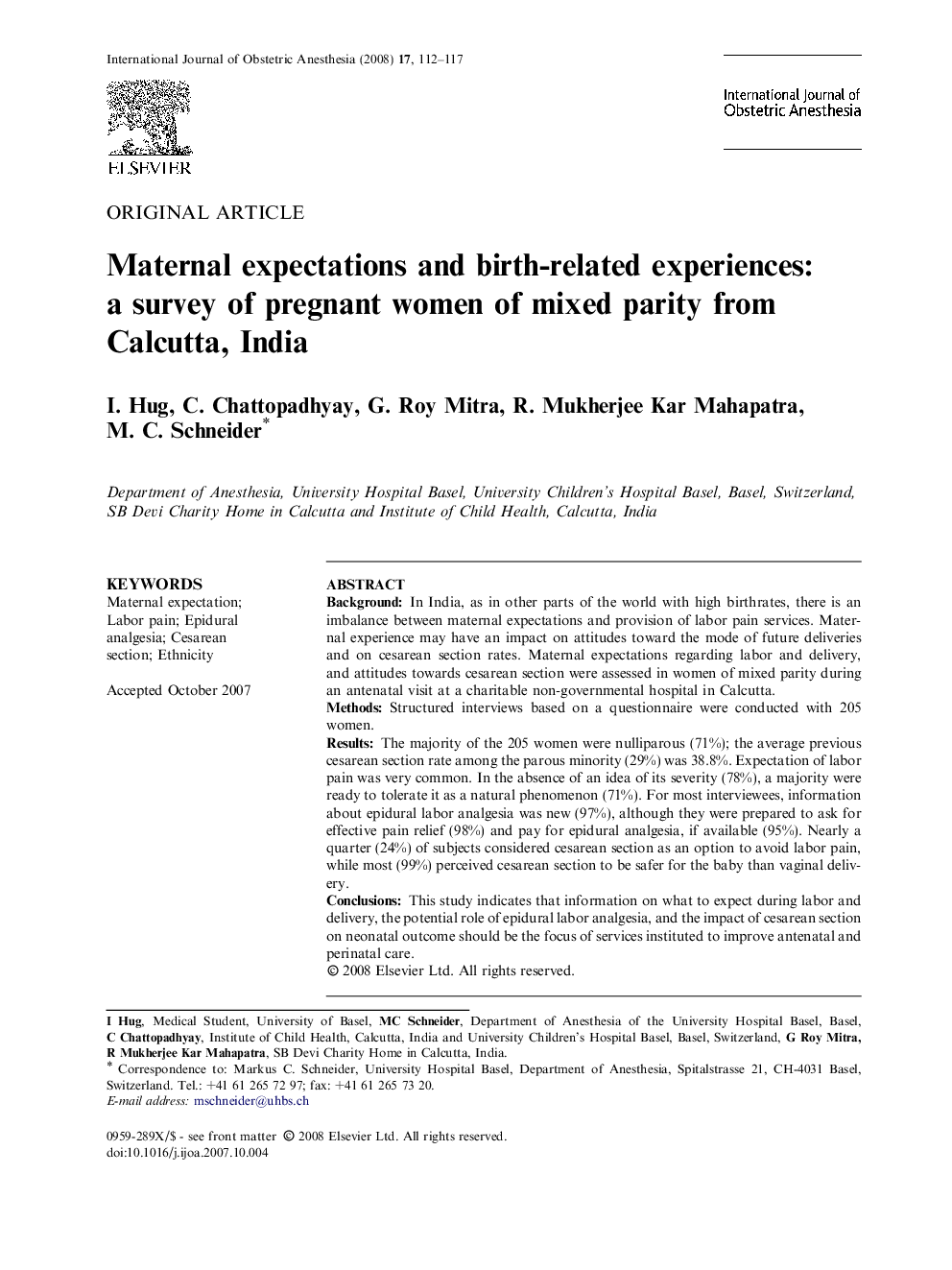| Article ID | Journal | Published Year | Pages | File Type |
|---|---|---|---|---|
| 2758121 | International Journal of Obstetric Anesthesia | 2008 | 6 Pages |
BackgroundIn India, as in other parts of the world with high birthrates, there is an imbalance between maternal expectations and provision of labor pain services. Maternal experience may have an impact on attitudes toward the mode of future deliveries and on cesarean section rates. Maternal expectations regarding labor and delivery, and attitudes towards cesarean section were assessed in women of mixed parity during an antenatal visit at a charitable non-governmental hospital in Calcutta.MethodsStructured interviews based on a questionnaire were conducted with 205 women.ResultsThe majority of the 205 women were nulliparous (71%); the average previous cesarean section rate among the parous minority (29%) was 38.8%. Expectation of labor pain was very common. In the absence of an idea of its severity (78%), a majority were ready to tolerate it as a natural phenomenon (71%). For most interviewees, information about epidural labor analgesia was new (97%), although they were prepared to ask for effective pain relief (98%) and pay for epidural analgesia, if available (95%). Nearly a quarter (24%) of subjects considered cesarean section as an option to avoid labor pain, while most (99%) perceived cesarean section to be safer for the baby than vaginal delivery.ConclusionsThis study indicates that information on what to expect during labor and delivery, the potential role of epidural labor analgesia, and the impact of cesarean section on neonatal outcome should be the focus of services instituted to improve antenatal and perinatal care.
